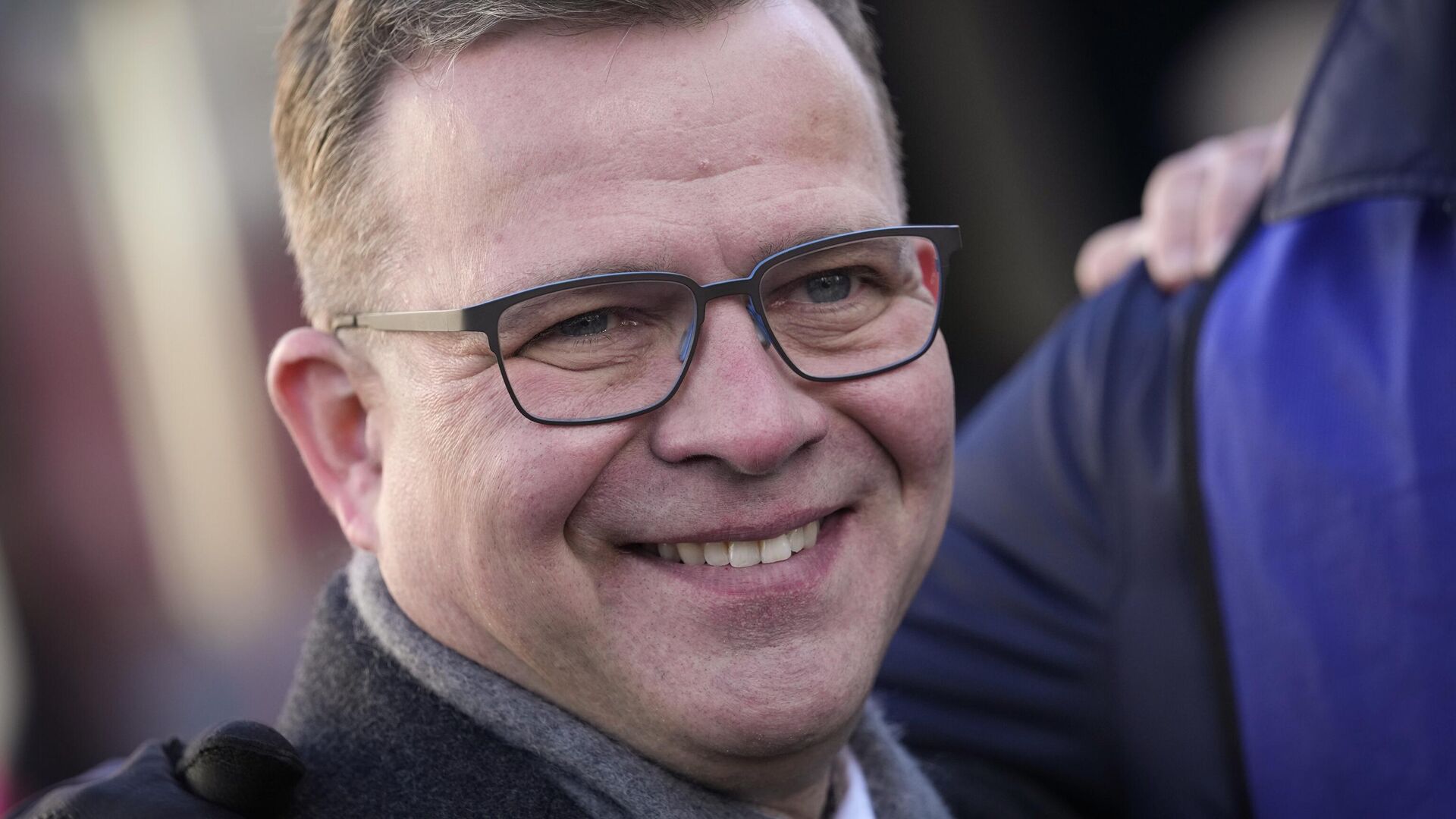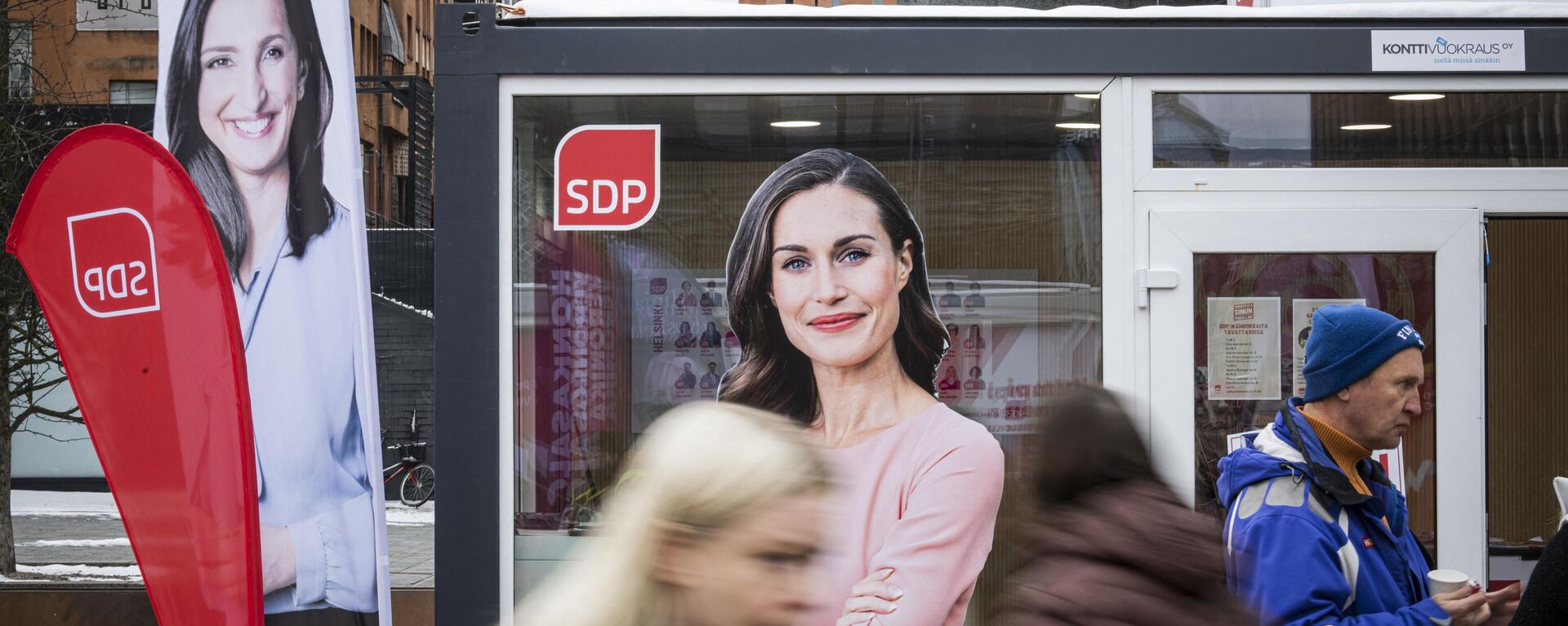https://sputnikglobe.com/20230404/who-is-petteri-orpo-the-man-set-to-be-finlands-new-pm-1109098149.html
Who is Petteri Orpo, the Man Set to Be Finland's New PM?
Who is Petteri Orpo, the Man Set to Be Finland's New PM?
Sputnik International
National Coalition leader Petteri Orpo is a fiscal conservative, who has promised to cut unemployment benefits, reduce public debt, and allow tax cuts.
2023-04-04T06:15+0000
2023-04-04T06:15+0000
2024-03-11T10:58+0000
world
finland
scandinavia
news
national coalition party (finland)
petteri orpo
election
https://cdn1.img.sputnikglobe.com/img/07e7/04/02/1109058897_0:160:3073:1888_1920x0_80_0_0_678fd8695072fd189686605151fd0d38.jpg
As Finland’s incumbent Prime Minister Sanna Marin acknowledged defeat in a neck-and-neck election, the liberal-conservative National Coalition led by Petter Orpo claimed victory and is on its way to form a coalition government.Despite Marin being lionized by domestic and international media as a "progressive icon", her Social Democrats failed to secure a second term, losing to both the National Coalition and the nationalist Finns. Though less than a single percent separated the three parties at 20.7, 20.1 and 19.9 percent, the poor showing of the Social Democrats' support parties further cemented the rightward swing.Who is Petteri Orpo? The contrast between him and outgoing Prime Minister Sanna Marin couldn't be greater. Marin was celebrated as the youngest prime minister in Finland's history and became something of a rockstar among the European (and largely, international) left for her feminist views. She also often found herself in hot water over throwing parties (including during lockdown) that involved riotous dancing and even alleged drug use, which she denied.Orpo, on the other hand, has projected a down-to-earth and mundane, if not colorless, persona, and has always been eclipsed by more popular party mates, including former Prime Minister Alexander Stubb and incumbent President Sauli Niinisto. His social network account is also a tiny fraction of Marin's.Born in 1969 in rural southern Finland, the 53-year-old has a university degree in political science. He is married with two children, and remains a reserve officer in Finland's national defense force.Petteri Orpo has been a member of parliament since 2007 and became head of the National Coalition in 2016 after successfully challenged his predecessor, the former prime minister Alexander Stubb.He has the reputation of being a strong negotiator and has held several government posts, including minister of agriculture and forestry, interior minister and finance minister. Among others, he earned praise for his handling of the 2015 migration crisis, when Finland alone saw a tenfold increase in asylum seekers.Internationally, however, Orpo's advent bodes little change for Finland's foreign policy. His program includes ditching Russian fossil fuels in favor of solar and wind energy instead. Orpo also insisted on the construction of the (rather symbolic) barrier fence on the border with Russia. He also remains a convinced NATO supporter and has backed Kiev in the ongoing conflict in Ukraine – as had the outgoing government.So far, Orpo has kept his options open as to which parties he may team up with after the election, including his main rivals, outgoing prime minister Sanna Marin's Social Democrats and nationalist Finns led by Riikka Purra. However, because of political and economic differences with either of his counterparts, government-building negotiations are expected to be tortuous and could last several weeks. The National Coalition disagrees with the nationalist Finns on immigration, the EU and climate change and with the Social Democrats on budget discipline and austerity measures. The former allies Center Party effectively switched to the left-wing bloc and said outright they had no plans to join the government.
https://sputnikglobe.com/20230403/finland-facing-likely-rightward-turn-as-rock-star-pm-loses-election-1109061879.html
finland
scandinavia
Sputnik International
feedback@sputniknews.com
+74956456601
MIA „Rossiya Segodnya“
2023
News
en_EN
Sputnik International
feedback@sputniknews.com
+74956456601
MIA „Rossiya Segodnya“
Sputnik International
feedback@sputniknews.com
+74956456601
MIA „Rossiya Segodnya“
finnish election, petteri orpo, prime minister sanna marin, national coalition, coalition government, right-wing turn
finnish election, petteri orpo, prime minister sanna marin, national coalition, coalition government, right-wing turn
Who is Petteri Orpo, the Man Set to Be Finland's New PM?
06:15 GMT 04.04.2023 (Updated: 10:58 GMT 11.03.2024) Petteri Orpo, the winner of the Finnish election, is a fiscal conservative, who has promised to cut unemployment benefits and other welfare programs. He also ran on the pledge to reduce the public debt, allow tax cuts and boost economic growth.
As Finland’s incumbent Prime Minister Sanna Marin acknowledged defeat in a neck-and-neck election, the liberal-conservative National Coalition led by Petter Orpo claimed victory and is on its way to form a coalition government.
Despite Marin being lionized by domestic and international media as a "progressive icon", her Social Democrats failed to secure a second term,
losing to both the National Coalition and the nationalist Finns. Though less than a single percent separated the three parties at 20.7, 20.1 and 19.9 percent, the poor showing of the Social Democrats' support parties further cemented the rightward swing.
The contrast between him and outgoing Prime Minister Sanna Marin couldn't be greater. Marin was celebrated as the youngest prime minister in Finland's history and became something of a rockstar among the European (and largely, international) left for her feminist views. She also often found herself in hot water over throwing parties (including during lockdown) that involved riotous dancing and even alleged drug use, which she denied.
Orpo, on the other hand, has projected a down-to-earth and mundane, if not colorless, persona, and has always been eclipsed by more popular party mates, including former Prime Minister Alexander Stubb and incumbent President Sauli Niinisto. His social network account is also a tiny fraction of Marin's.
Born in 1969 in rural southern Finland, the 53-year-old has a university degree in political science. He is married with two children, and remains a reserve officer in Finland's national
defense force.
Petteri Orpo has been a member of parliament since 2007 and became head of the National Coalition in 2016 after successfully challenged his predecessor, the former prime minister Alexander Stubb.
Orpo is a self-styled fiscal conservative, who has promised to cut spending on unemployment benefits and other welfare programs. He ran on the pledge to reduce the public debt and make room for tax cuts aimed at boosting economic growth.
He has the reputation of being a strong negotiator and has held several government posts, including minister of agriculture and forestry, interior minister and finance minister. Among others, he earned praise for his handling of the 2015 migration crisis, when Finland alone saw a tenfold increase in asylum seekers.
Internationally, however, Orpo's advent bodes little change for Finland's foreign policy. His program includes ditching Russian fossil fuels in favor of solar and wind energy instead. Orpo also insisted on the construction of the (rather symbolic)
barrier fence on the border with Russia. He also remains a convinced
NATO supporter and has backed Kiev in the ongoing conflict in Ukraine – as had the outgoing government.
So far, Orpo has kept his options open as to which parties he may team up with after the election, including his main rivals, outgoing prime minister Sanna Marin's Social Democrats and nationalist Finns led by Riikka Purra.
However, because of political and economic differences with either of his counterparts, government-building negotiations are expected to be tortuous and could last several weeks. The National Coalition disagrees with the nationalist Finns on immigration, the EU and climate change and with the Social Democrats on budget discipline and austerity measures. The former allies Center Party effectively switched to the left-wing bloc and said outright they had no plans to join the government.



